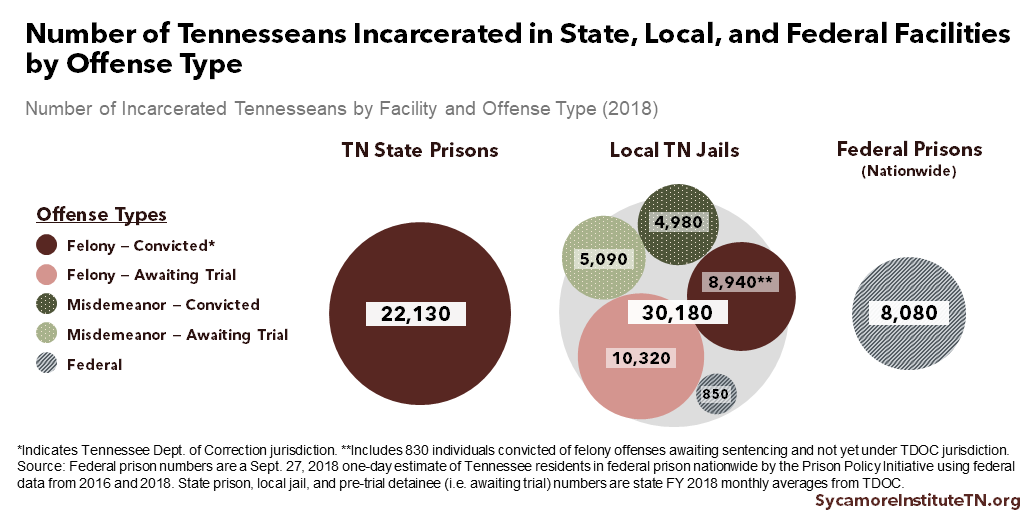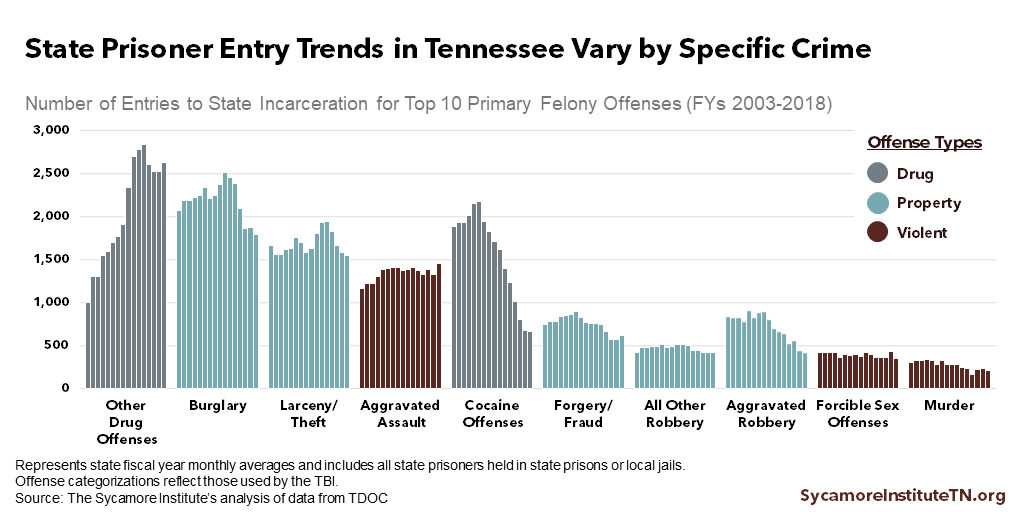Last year Tennessee had an all-time high incarceration rate, which was 10% higher than the national average, according to a report released in October.
This is shocking because in the past decade, incarceration rates in middle and west Tennessee have been declining, and state-wide admissions have also been declining. However, according to the same report, incarceration rates in east Tennessee have grown 11% in the past decade.
In addition to high rates of incarceration in east Tennessee, longer sentencing also played a role in the rise in Tennessee’s prison population. Excluding life sentences and death row inmates, the average time served was 58 months in 2018. While people are being admitted into Tennessee prisons at a slower rate, they are staying for longer, leading to an overall increase of people in the system.
As of June of this year, the Tennessee Department of Corrections (TDOC) was operating at 94% capacity, according to a TDOC spokesperson. Since 2017, the TDOC has spent over $1 billion per year on state incarceration costs.
The October report that released these findings is from the non-profit Community Resources for Justice, which presented its findings to a task force that will be recommending policies to Tennessee Governor Bill Lee over the next two years. Lee is in his first term as governor, and he is prioritizing criminal justice issues.
The task force includes several local officials, such as Rep. Yusuf Hakeem, D-Chattanooga, and Alexander McVeigh, a Hamilton County judge. Task force members have cited both the opioid epidemic in Appalachia and implicit racism as factors in Tennessee’s high incarceration rates.
The Appalachia opioid epidemic could explain why higher rates of incarceration are coming from counties in east Tennessee. Hakeem has cited implicit racism as an explanation for why Tennessee incarcerates roughly 1110 per 100,000 African Americans and only 345 per 100,000 whites.
Tennessee has a history of unusually long average sentences, including the passing of the 1995 “Truth in Sentencing” law. This law requires that someone sentenced to life with the possibility of parole must serve at least 51 years before that possibility of parole is available to them. Before this law, the minimum was 25 years, and the current 51-year minimum is the longest in the nation. It has applied when sentencing minors, some of whom were sentenced for crimes committed at as young as age 14. The Truth in Sentencing law was passed during a “get tough on crime” campaign where President Clinton was offering federal funding to states that increased their sentencing laws.
Only 1 in 4 people in Tennessee jails and prisons are there for violent crimes. 33% are there for property crimes and 27% for drug crimes. Of new inmates admitted in 2018, nearly 40% were incarcerated for parole and probation violations.
As of 2014, Tennessee had a 47% 3-year recidivism rate, meaning that nearly half of those released from the prison system were back within 3 years. According to the Chattanooga Times Free Press, Governor Lee has directed the task force to recommend policies and programs that will help ex-prisoners’ re-entry into society, including education, vocational training, and substance abuse assistance.



